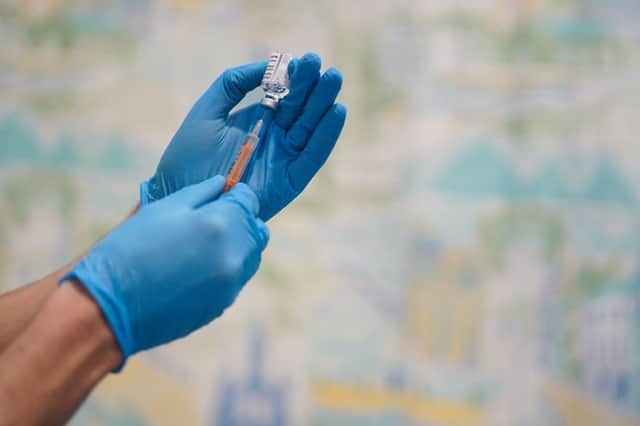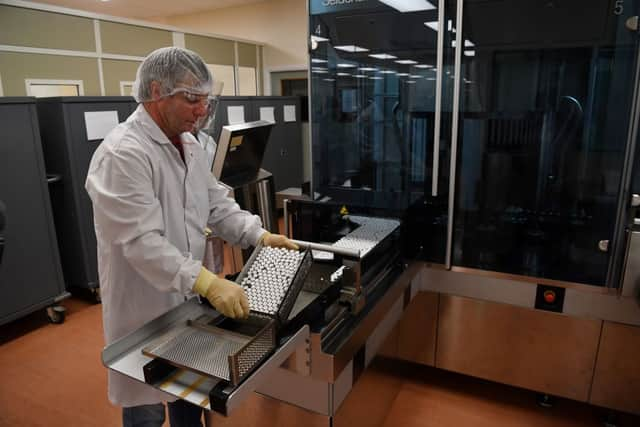Scientists ‘discover' way to speed up vaccine production for future pandemics


Millions of vaccine doses could be manufactured within 100 days under a new blueprint set out by researchers at Oxford University.
They say the new large-scale methods could also enable clinical trials within 60 days of the identification of a new virus.
Advertisement
Hide AdAdvertisement
Hide AdIt could mean that, say there was a major new pandemic tomorrow, vaccines would be ready in a much shorter timeframe than they were for the Covid pandemic.
The news comes after more data emerged on Monday (20 December) about the protection provided by the AstraZeneca vaccine after a dose and the level of resistance the Moderna jab provides to the Omicron Covid variant.
What the researchers have said
The Oxford researchers believe their findings could enable vaccines like the Oxford/AstraZeneca Covid jab, as well as other new adenovirus-vectored vaccines, to achieve the ‘moonshot’ target for pandemic preparedness set by the Coalition for Epidemic Preparedness Innovations (CEPI) earlier in 2021.
CEPI’s target aims to help reduce vaccine development timelines to 100 days from identification of a virus to mass production.
Advertisement
Hide AdAdvertisement
Hide AdDr Sandy Douglas, who heads up the vaccine manufacturing research group in the Jenner Institute at the University of Oxford, said the research could help to “save many lives” in a new pandemic.


“When a new virus is identified, vaccine production is a race against time,” he said.
“Some people think that adenovirus-vectored vaccines are slow to manufacture – and that’s just not true.
“The process of bulk manufacturing, filling into vials, and testing takes pretty much the same length of time for most vaccines.
Advertisement
Hide AdAdvertisement
Hide Ad“The thing that can vary is how long it takes to prepare to start manufacturing.
“For an adenovirus-vectored vaccine, the key bit of preparation which is needed is to make a ‘seed’ virus. That’s the only thing that needs to change to make a new vaccine – so we’ve looked carefully at how to make that seed quickly.”
What does the Oxford paper say?
The Oxford researchers’ paper on this new blueprint has not yet been peer-reviewed, which means its findings have not been officially evaluated by other scientists and academics involved in vaccine research.
In the document, most of the pipeline for viral seed production described involves “tried and tested” methods.
Advertisement
Hide AdAdvertisement
Hide AdAccording to the researchers, relatively simple enhancements to this pipeline would accelerate the production process.
Dr Douglas said: “Manufacturing should no longer be a problem in hitting this goal.
“Vaccine developers now need to focus on how to accelerate the other critical steps, especially early financial decision-making and clinical trials.”
The paper also describes how bulk manufacturing could be adjusted to roughly quadruple the rate of vaccine production at each vaccine factory, and to further lower the cost of jabs.
Advertisement
Hide AdAdvertisement
Hide AdOne billion doses could be supplied within 130 days of the identification of a new virus – a quarter of the time taken by the current Covid jabs – if factories were on standby to use the new method described, the Oxford team has suggested.
The new process uses a method called perfusion, which the academics describe as introducing the equivalent of a kidney to the manufacturing process.
They say perfusion allows the removal of waste products which can slow down vaccine production, and allows constant replenishment of the culture with fresh nutrients.